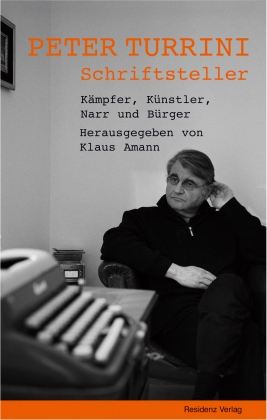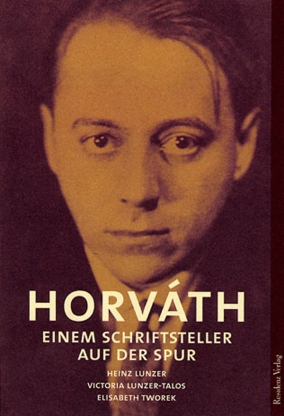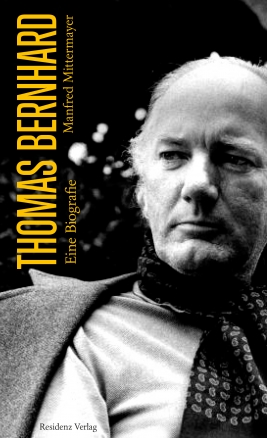
Klaus Amann (Edited by) - Peter Turrini – Writer.
Fighter, Artist, Jester and Citizen. A reader on the phenomenon of Peter Turrini.
His plays Rozznjogd (Rat Hunt) and Sauschlachten (Slaughtering Pigs), both scandalous milestones in the history of Austrian dramatic art, brought Peter Turrini to fame, and millions of TV viewers came to know him through his Alpensaga (Alpine Saga, TV mini series). Nobody interested in literature, theatre or even politics can avoid Turrini. He divides opinions. He is the typical committed writer, one who is not afraid to speak out, one who exposes himself to criticism, one who fights and thus also becomes vulnerable. But he is not only a razor-sharp, provocative and cynical critic of our world today, but also one who stands up as a friend and advocate for those who otherwise remain unheard and helpless, left-overs in a world committed to progress. The book contains contributions by Klaus Amann, Hermann Beil, Aleksander Berlin, Penny Black, Günther A. Höfler, Peter Huemer, Monika Meister, António Sousa Ribeiro, Arno Rußegger, Wendelin Schmidt-Dengler, Johann Sonnleitner, Daniela Strigl, Jürgen Wertheimer and a speech by Peter Turrini. Klaus Amann was born in 1949 in Mittelberg in the Western Austrian province of Vorarlberg and now lives in Klagenfurt (Carinthia). He studied English and German language and literature in Vienna and now is a professor for “History and Theory of Literary Living” and head of the Robert Musil Institute for Literary Studies at the University of Klagenfurt. Since 2004 he has also been the president of the International Erich Fried Society.
Ein Lesebuch über das Phänomen Turrini „Rozznjogd'“ und „Sauschlachten“, beides Skandalstücke und beides Meilensteine der österreichischen Dramatik, machten Peter Turrini berühmt, die „Alpensaga“ bei einem Millionenpublikum populär. Gleich ob als Leser, Theaterbesucher oder politisch denkender Mensch – an Peter Turrini kommt man nicht vorbei. Er scheidet die Geister. Er verkörpert den Typus des engagierten Künstlers, der sich nicht scheut, eine Meinung zu vertreten, der sich exponiert, der kämpft und der sich damit auch angreifbar macht. Doch er führt seine scharfe Klinge nicht als Provokateur oder Zyniker, sondern als ein Freund und Anwalt jener, die keine Stimme haben, sich nicht wehren können oder die als Ausschuss des Fortschritts auf der Strecke bleiben. Mit Beiträgen von: Klaus Amann, Hermann Beil, Aleksander Berlin, Penny Black, Günther A. Höfler, Peter Huemer, Monika Meister, António Sousa Ribeiro, Arno Rußegger, Wendelin Schmidt-Dengler, Johann Sonnleitner, Daniela Strigl, Jürgen Wertheimer und mit einer Rede Peter Turrinis.
Book details
232 pagesformat:140 x 220
ISBN: 9783701730582
Release date: 18.09.2007







